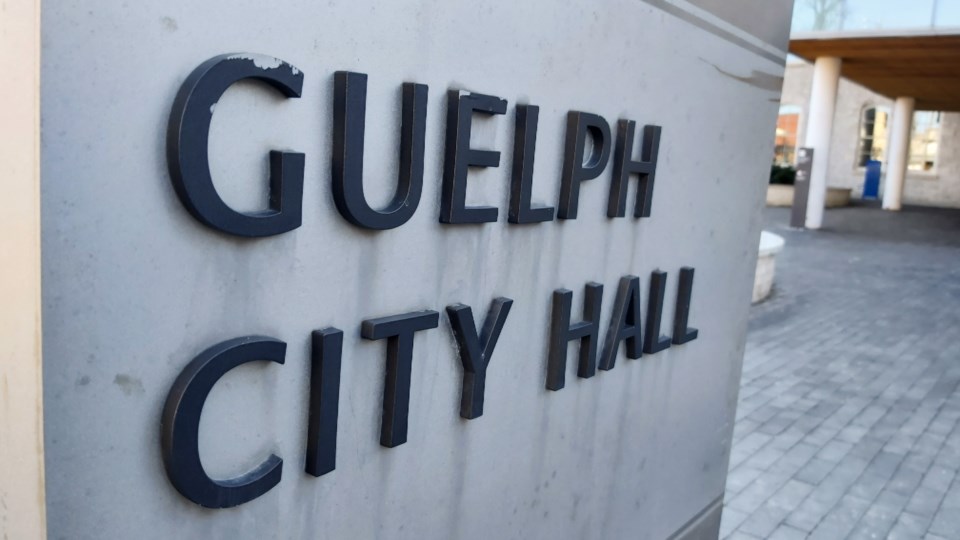The city and social service agencies are intent on addressing a housing affordability issue and local shelter system that some nights sees individuals in need turned away because there aren't enough spaces.
But addressing the homeless and affordability crisis is going to cost more money.
Wellington County officials told Guelph City Council at a special meeting Tuesday that they are seeking an additional $5.3 million in 2024 ($4.6 million from the city, and $734,000 from the county) for homelessness prevention, emergency shelters, emergency responses to homelessness, transitional housing, permanent supportive housing, rental supplements, maintenance costs and administration.
There will be a request for another increase of $1.2 million in 2025.
That was one of the points brought up during a special council meeting on homelessness and affordable housing night, a meeting that included reports and discussions about support for the un-housed and people on the cusp of homelessness.
The reports focused on addressing the needs of the housing continuum that includes emergency shelters, transitional housing, supportive housing, rent-geared-to-income, and affordable housing.
The County of Wellington is responsible for delivering supports for social and affordable housing. Its presentation was a preliminary budget impacts report, letting the city know there will be projected increases in municipal contributions to address "unprecedented increased demands of housing services,” said Luisa Artuso, social services administer at the County of Wellington.
In the first six months of 2023 there was a nightly average of 105 unique individuals accessing emergency shelter services and 70 individuals on a nightly average in 2022, outlined in the report.
In many cases people are diverted to other shelters in the city if there is no room or are turned away altogether, Artuso said.
In response to the increased demand there will be a need for additional outreach workers, divergent rapid rehousing workers, and an additional 65 emergency shelter beds.
“We believe that everyone should have housing. It's a housing first philosophy that we have always had in housing services,” said Artuso.
“It is much more cost effective to prevent homelessness in the first place than it is to discover someone on the by-name list and then try to rehouse them in a social housing unit. It’s best to try to support people where they are right now,” she said.
It’s not only a right to housing but also the right to mental health and addiction supports, Artuso said.
A report received by council called A Review and Gap Analysis of Housing, Mental Health & Substance Use Services for People Experiencing Homelessness in Guelph, aims to address the current state, gaps and recommendations for homelessness in the city.
The areas of improvement are the barriers to access local programs and services with long wait times. There is a need for low barrier spaces for those experiencing homelessness, which could look like a space where they can access recreation programming during the day.
There should be adequate funding to support the growing need and to help with staff burnout. A focus on acquiring stable housing first can be improved. A collaborative systems level approach was stressed throughout the meeting. A clarity of what the roles are within the system, whether it be the role of the city could improve people’s understanding of who does what.
Coun. Dominique O’Rourke tried to understand why there is a perception that there is a lack of low barrier spaces when there are organizations like Chalmers, Hope House and Guelph Community Health Center.
Liz Robinson the director of Collective Results, the consulting firm that did the report, did agree there are many great services available in the community but Grove Youth Wellness Hub stood out since services are all under one roof.
Right now people have to move from the Guelph Community Health Centre, to Royal City Mission to the library for example, Robinson said.
“And another part of that hub model is just low barrier daytime space even just for recreation,” she said.
“Where's the effectiveness of the investments that have been made? What do you suggest how we can start to raise the bar of accountability on seeing positive outcomes with those investments?” asked Mayor Cam Guthrie.
“We want to know, at the end of the day, is anyone better off. And the only way that can be done is if you look at the whole system and all of the partners. And people involved need to understand what are we trying to achieve in the short term, and the intermediate term and the long term and you build a framework around that. And you develop a plan to measure that,” said Robson.
This is why Collective Results recommended for council to request the local board of health lead a comprehensive outcome evaluation so the work going into addressing homelessness can be measured.
The final report of the evening addressed affordable housing in Guelph, or the lack thereof with a housing affordability strategy. Presenting the report is the initiation of the project and a recommended final housing affordability strategy could be reviewed by fall 2024.
The purpose of the strategy is to define the problem and identify actions to address the housing gap. The goals are to allow for a larger supply and mix of housing, maximize existing housing to have a larger supply of affordable housing and boost awareness for affordable housing.
There will be a housing affordability advisory group composed of for profit and nonprofit partners, real estate professionals, advocacy groups, and individuals with lived experience. A call out for members of the general public to join the group will be sent out to capture resident experience. There will also be an internal working group at the County of Wellington.
The next special meeting is on Oct. 17.
